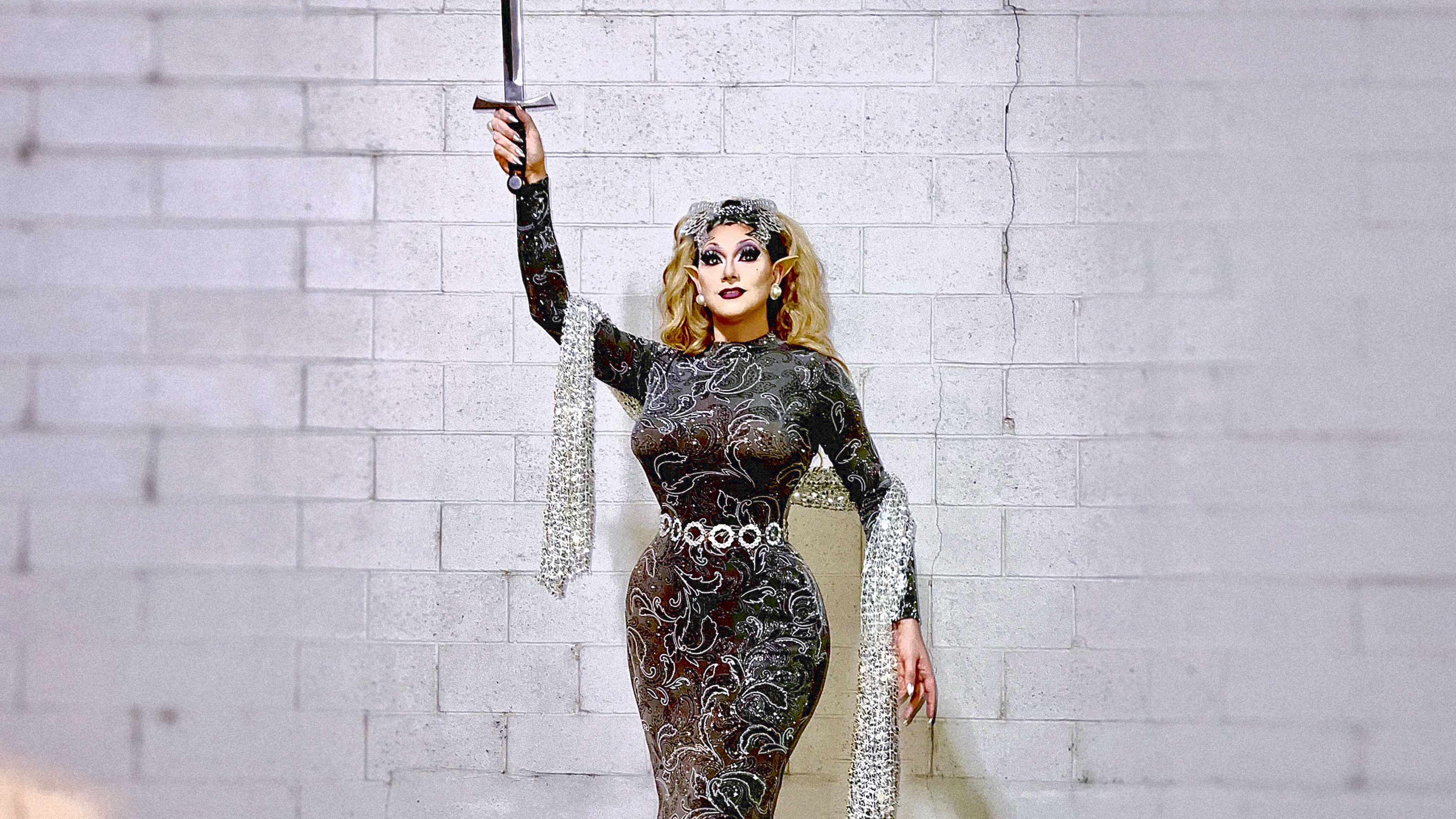Bella DuBalle was visiting her parents’ farm in Cedar Grove, Tennessee, earlier this month when she got the news that Governor Bill Lee had signed into law a ban on gender-affirming healthcare for transgender children as well as a ban on “adult-oriented performances” in front of minors from artists including “male and female impersonators,” i.e. drag performers.
DuBalle, a professional drag queen based in Memphis, immediately saw through what Lee proposed as protective measures for children for what’s really going on: a blatant attempt to further marginalize and erase the LGBTQ+ community.

“To me, it was a very concise message to queer Tennesseans that we don’t want you here,” says DuBalle, who’s been doing drag for 10 years. “[I thought], is my livelihood in danger? Are my trans siblings in danger? Am I going to be able to keep providing a safe space for queer youth? It was a lot.”
So DuBalle packed up that same morning and headed back to Memphis to start coordinating her resistance efforts in what’s been a broader wave of recent anti-LGBTQ+ legislation across the country.
According to the American Civil Liberties Union, more than 400 anti-LGBTQ+ bills have flooded the U.S. so far in 2023. These bills, some of which have become law, include limiting access to healthcare, controlling educational curricula, determining who can and can’t compete in school sports, and—most recently in the headlines—what kind of public performances, such as drag shows, are permissible.
Conservative lawmakers have had drag performers in their crosshairs as far back as 2019 when there was a push to ban drag queens from reading to children in bookstores and libraries. But with Tennessee becoming the first state to enact a law restricting drag performances in public spaces—and with drag continually cementing its place in mainstream culture—there’s been renewed attention on how expansive anti-LGBTQ+ laws have become. Particularly, there’s heightened focus on how vaguely they’re written.
Tennessee’s law doesn’t actually state anything about “drag” explicitly. Rather, it places “male and female impersonators” in the same category as topless dancers, go-go dancers, exotic dancers, and strippers, which, for starters, is a gross misrepresentation of how broad the art form of drag is and for whom it can be. Deeper still is the lack of clarity on who constitutes a male or female impersonator. Does that extend to actors in a play? Will trans people be subject to even further policing if they’re deemed to be “impersonating” another gender?
“With the language being so vague, how can you pin down what we’re doing and say what it is?” DuBalle says.
Already across Tennessee, DuBalle says some venues have preemptively cancelled their drag shows; and even theater, ballet, and opera companies have been changing their season lineups to remove such productions as Peter Pan, Mrs. Doubtfire, or anything written by William Shakespeare so as to not possibly run afoul of the law.
DuBalle, who is an ordained minister and the show director at the Memphis nightclub Atomic Rose, is standing firm on continuing her work both under the protection of freedom of religion and due to the fact that as Tennessee’s law currently exists, it shouldn’t apply to drag performers.
“We’re not adult cabaret artists,” she says. “So we intend to keep doing what we’ve been doing.”
DuBalle mentions that some venues are reverting to underground tactics to subvert the law, such as including a membership card in a cover charge, thereby turning a public show into a private event. DuBalle adds that she even had an offer to be ordained in a church that’s founded on queerness as a religious experience so she could treat the performances she hosts at Atomic Rose as church services.
There are a number of creative solutions that drag performers are devising—as marginalized communities so often are forced to do. But what’s looming on the horizon when Tennessee’s law goes into effect July 1, as well as the forthcoming anti-drag legislation cropping up across conservative states, is how the broad language will be intentionally misused.
“The only way to enforce a law like this is to go all the way back to what caused Stonewall,” says DuBalle, referencing the “three-article rule” that took hold in the 1960s in which people could be subject to arrest if they wore fewer than three items of clothing that matched their gender assigned at birth. Those kind of Draconian laws fanned the mounting tension that eventually led, in 1969, to the Stonewall uprising, subsequently sparking the LGBTQ+ liberation movement.
However, as we saw with Roe v. Wade being overturned last year, landmark progress for equality and civil rights can always be blown backwards as the conservative agenda grows bolder.
“The idea that we’re going to try and police something as simple as what people wear—is this 2023?” DuBalle asks. “This is not democracy as I was taught it.”
As amorphous as this anti-drag legislation has been, what’s very clear is the deep hypocrisy here.
The Republican lawmakers behind these laws are touting the need to protect children while doing nothing, if not actively propelling, gun violence, the leading cause of death for children in the United States. Tennessee, in fact, is on track to pass a law that would expand the type of guns that citizens would be allowed to carry and lower the age from 21 to 18 for owning or carrying a handgun.
Last year, the Southern Baptist Convention, the governing body of 50,000 Southern Baptist churches, released a list of more than 700 ministers accused of sexual abuse, oftentimes against minors—and that’s just one denomination.
“If that’s true, then kids are way more in danger in church than they are in drag queen story time,” DuBalle says. “We don’t make any attempt to legislate whether or not a parent can take their kids to church. We uphold a parent’s right to determine what’s appropriate for their kid. I don’t understand how suddenly this is a different affair.”
“[Gov. Lee] could not produce a single instance or occurrence of a kid being harmed at a drag show—not one,” DuBalle continues. “So what is this law about then?”
She also points out that the “concern” over protecting children conveniently fails to mention LGBTQ+ children, who are perpetually at greater risks of anxiety, depression, and self-harm.
“We know that if anyone affirms these kids, then their risk for suicide goes down,” DuBalle says. “I provide a safe space for queer youth. Many of them have never been in a place that they could experience community.”
For DuBalle, being one of Memphis’s leading queens as all this has unfolded has thrust her to the forefront of the conversation. In the past two weeks alone, she says she’s had more than 50 media interviews.
“I never considered myself an advocate,” she says. “When we heard about this bill, I had to sit down and go learn what committees in the House and the Senate were and who voted on what. I didn’t know any of that stuff. Unfortunately, most of us don’t get active until it personally affects us.”
But now, with the growing platform she’s been given, she has every intention on using it to rail against the baseless rhetoric and laws that aim to silence the LGBTQ+ community.
“I’ve always believed that you try and be the person that you needed when you were younger,” DuBalle says. “And so, if I’m given a platform, and all I have in this fight is my voice, then I just pray that it is an effective enough weapon.”
Recognize your brand’s excellence by applying to this year’s Brands That Matter Awards before the early-rate deadline, May 3.
